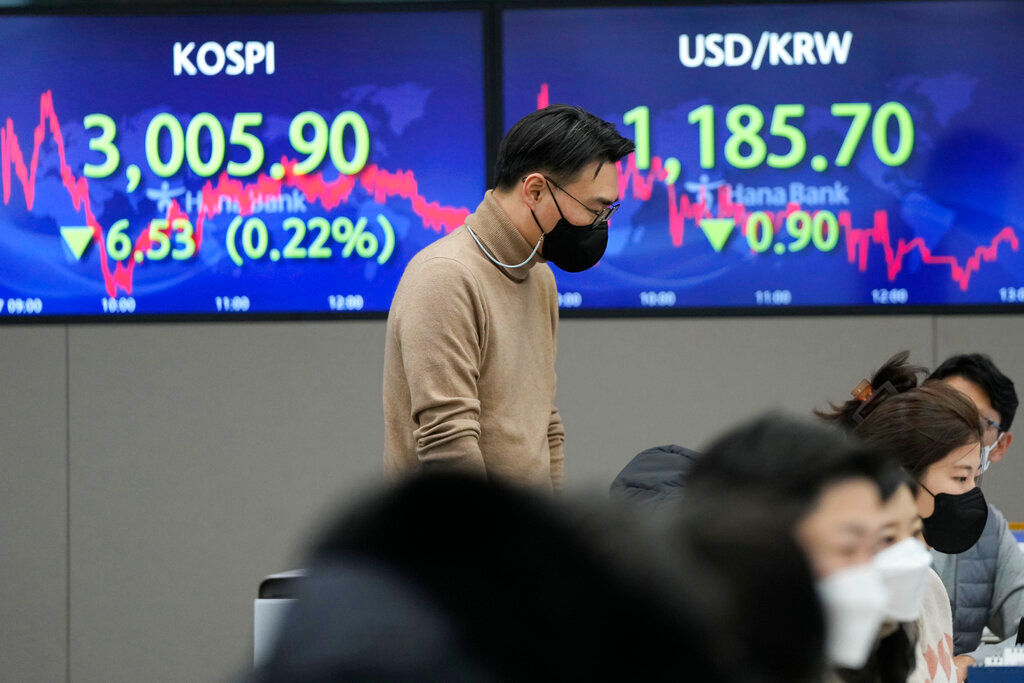Asian shares were mixed on Monday at the outset of the last trading week of the year as countries grappled with the spread of the omicron coronavirus variant.
Benchmarks rose in Shanghai and Bangkok on Monday but fell in Tokyo and Seoul. Many global markets are closed for holidays.
Comments by China’s central bank, or People’s Bank of China, about support for the economy highlighted differences in stance among major economies in balancing the need to support economic recoveries from the pandemic while keeping inflation in check.
The Federal Reserve is among a handful of central banks that have already begun cutting interest rates or otherwise cutting back on the extra support they provided when the pandemic first slammed world economies in early 2020.
“The divergences in global monetary policy are set for a sharper turn heading into the new year, especially after the PBOC’s announcement that it will remain ‘proactive’ in its use of monetary policy tools,” Mizuho Bank said in a commentary.
“With Omicron cases rising across China, pushing regions into lock downs and tighter social restrictions, a case for additional growth support is increasingly clearer,” it said.
The Shanghai Composite index rose 0.2% to 3,623.58, while Thailand’s SET was nearly unchanged.
Tokyo’s Nikkei 225 index lost 0.2% to 28,722.87 and the Kospi in Seoul declined 0.3% to 3,004.92. India’s Sensex slipped 0.3% to 56,935.80.
Markets were closed in Hong Kong, Malaysia and Australia.
That followed a mixed day of quiet trading on Friday, when many markets around the world were closed or ending early in observance of Christmas.
Last week, the S&P 500 set another record as fears ebbed about the potential impact of omicron outbreaks. However, much is still uncertain about the variant, which is spreading extremely quickly, leading to a return to pandemic restrictions in some places.
Hundreds of flights were cancelled in the U.S. over the holiday weekend, with airlines reporting COVID-related staffing problems. France reported more than 100,000 new cases in a daily record.
Authorities in many countries have doubled down on vaccination efforts as omicron outbreaks complicate efforts stave off fresh lockdowns while hospitals are still under strain from delta variant infections.
A day earlier, Wall Street’s benchmark S&P 500 index rose 0.6% to set a record as investor fears ebbed about how badly the omicron variant will hit the economy at a time when inflation is running at a nearly four-decade high in the United States.
In energy markets Monday, U.S. benchmark crude oil gave up 63 cents to $73.16 per barrel in electronic trading on the New York Mercantile Exchange. The price of Brent crude oil rose 19 cents to $75.98.
The U.S. dollar was at 114.45 Japanese yen, up from 114.38 yen late Friday. The euro rose to $1.1322 from $1.1318.







